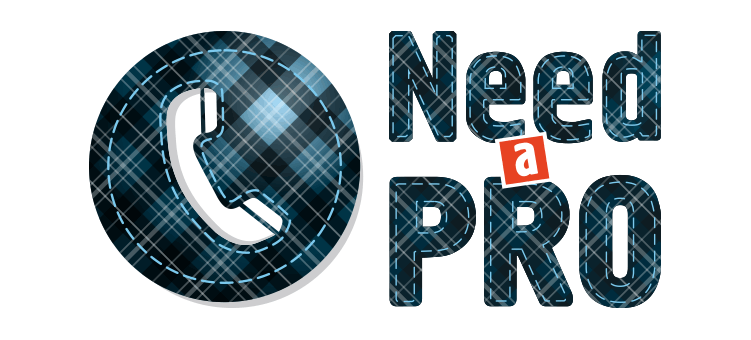Being a personal Assistant
What is a personal assistant?
A personal assistant is someone who is usually employed directly by a person who needs support to live their life in a way they choose.
They can also be employed by a family
member or representative, when the person they are supporting does not have the physical or mental capacity to be the employer.
However, a personal assistant always works directly with the individual they are supporting and should never be self employed.
People employing personal assistants are often referred to as individual employers.
As a personal assistant you are likely to be involved in many aspects of your employer’s life and may be asked to provide support in the home, at leisure or at work. The opportunity to focus directly on the needs of an individual and the diversity of the role and tasks is what often attracts many people to this type of work.
I really feel
I am making a difference.
To work as a personal assistant, you don’t necessarily need to have any previous experience or qualifications;
what is important is having the right values because your employer will rely on you for support.
What makes being a personal assistant a rewarding job?
Working as a personal assistant has a number of advantages.
You can work around your other commitments as required. That means you can find a job with the hours to suit when you are able to work. You can also work for more than one person if you want to.
There are opportunities to provide a wide range of support for different people who want or need different things. You could also work with someone who has the same interests as yourself
As a personal assistant you can often be better paid than working through an agency
Job satisfaction
Because you are employed directly by the individual, you will be there for the time they need and tasks can be done well without the need to rush off. This also means you can build a longer term professional relationship with your employer
I enjoy the variety of the work
I didn’t realise how different the work would be from working for an agency.
What do personal assistants do?
The role of a personal assistant is extremely varied and no two jobs will ever be the same. This is because the individual employing a personal assistant can choose exactly how they are supported to fit with their needs.
Personal assistants can provide support for the things people need day to day to maintain their health and wellbeing, things that they are aiming to do and things they want to learn to do again.
As a personal assistant you may be supporting an employer:
at their place of work or education
to maintain relationships with family and friends, including supporting the person with childcare
to meet new people and develop new friendships
by going with them to their hospital and other appointments
to recover their mental health by helping to manage their anxiety about going out
to become healthier after a physical illness, for example, through a better diet or more exercise
to develop a new skill or get a job.
Some personal assistants may carry out, with adequate training, certain health care related tasks.
Not all personal assistants will be employed to carry out all of these tasks, it maybe that your employer wants support with just one of these. Quite often the role can be about companionship and having a shared interest in things like music, politics or sport.
to get about in the community, by providing transport, driving their car or using public transport
to maintain hobbies and interests, like going to the cinema, gigs, swimming or going on holiday
by providing personal care, including support to dress, wash and bathe
to communicate their wants and needs
by carrying out household tasks like cooking, cleaning, meal preparation, shopping, organising paperwork, moving home and in some cases pet care
by going with them to their hospital and other appointments
to recover their mental health by helping to manage their anxiety about going out
to become healthier after a physical illness, for example, through a better diet or more exercise
to develop a new skill or get a job.
Some personal assistants may carry out, with adequate training, certain health care related tasks.
Not all personal assistants will be employed to carry out all of these tasks, it maybe that your employer wants support with just one of these. Quite often the role can be about companionship and having a shared interest in things like music, politics or sport.
Who can be a personal assistant?
When employing a personal assistant, people look for someone who is a good personal fit. So it’s not always about previous experience but ensuring the person they employ has the right values and skills to do the job.
Anyone can be a personal assistant as long as they:
enjoy helping people to live their life in the way that they choose
would like to enable others to make a real change to their life
are comfortable working on their own or with other personal assistants as part of a team
have the ability to develop a strong, trusting relationship with their employer
understand that they are an employee and not a friend
understand that they do not direct the work, but that their employer does.
As a personal assistant you should:
Things to be aware of
As a personal assistant you will have a unique relationship with your employer. You are supporting your employer to be independent and although this can feel like a personal relationship, it is not. It is important to remember you are the employee and it is best to remain independent and professional.
It is important to understand the impact certain circumstances may have on your employer, for example, if you do not or cannot turn up to work.
There are times when being a personal assistant could be personally difficult or emotional, particularly if it involves working with a person at the end of their life. It may feel like you are supporting your employer’s family as well.
As such, there may, from time to time, be problems with the relationship between you and your employer.
Any problems should be addressed properly and as laid out within the terms of your employment contract (or terms of employment).
You should discuss how issues can be addressed early on in your relationship with your employer.
The recruitment process
Where to find a job
There are lots of ways to find a job as a personal assistant, here are a few examples of where to look.
You may also be able to find a job through friends or family.
Local job centre
Personal assistant networks, registers or banks run by local councils, health or support organisations - you can register on these when you are looking for work.
Some may require you to undertake checks or training before being added you to their list.
Local papers.
Shop windows or notice boards.
Local voluntary sector organisations which work with disabled people.
Understanding the role
As a personal assistant, the job can involve different tasks. The person requiring a personal assistant will have an idea of the type of person they are looking for and an outline of what they want them to do. This will usually be set out in a job description.
Before applying for a job, read the advert and job description carefully so that you are clear about the tasks you are going to be asked to do. It is important to make sure you can do them all, because there would be no point applying for a job that involves going swimming twice a week if you don’t like water.
People often employ different personal assistants to do different tasks. For example, one may be employed to help them bathe, whilst another will support them to go out and socialise with their friends.
Your employer’s needs could change over time or even day to day, so it is vital to review the job description regularly to make sure everything works well between you and your employer.
It is up to your employer to define the role and the tasks you will be asked to carry out.
As a personal assistant it is important to be flexible, however if you feel you are asked to do anything outside of what you expect, it is vital to have a conversation with your employer to clear up any issues and continue a good working relationship.
Getting the job
When applying for the job, you may be asked to provide a CV (curriculum vitae – a written overview of your skills, experience and qualifications) or fill in an application form, so that the person requiring a personal assistant can find out more about you and your experience. If all goes well you should be invited to an interview, so that the person can meet and get to know you better.
The interview may be very informal and could be held at a different location to where you will be actually working. During the interview remember to be yourself, talk about relevant experience and qualities and be prepared to ask questions.
After interview you should be contacted to let you know if you were successful or not. If you have not heard anything, contact the person who interviewed you. If you were not successful, you may want to ask for feedback to help you with future interviews.
If you are successful, you should then agree a start date, and you may be provided with an employment contract, so that you can be sure of what the job involves.
Checks and references
It is strongly recommended that employers carry out recruitment checks on potential personal assistants before offering a contract. So if you are offered the job, your future employer will likely want to carry out some checks.
These may include references, Disclosure and Barring Service (DBS) (formerly know as CRB) and right to work checks.
You should bear this in mind when applying for jobs and be prepared to give names of former employers and/or character references.
It’s important to be able to get on with everyone in the household, even the pets.
Starting work
Getting off to a good start with your employer is very important. A way to do this is through a probationary period and induction.
Probationary period
This is a two-way trial period that gives both you and your new employer a chance to get to know each other and to make sure you are suited to the job without committing yourself completely.
Your new employer should set the probationary period, for example three months, and may want to meet with you during that time so you can both talk about what is working well or not going so well. They may also use this an opportunity to talk about any training that you may need.
Induction - what is it and when should it take place?
Induction is an introduction to everything related to the job you will be doing and the environment in which you will be working. It will usually be carried out by your employer and could be as simple as turning up on your first day and being guided through what to do and what is
expected of you. It is about getting to know each other and developing your working relationship.
An induction will help you settle into your role quickly and can also be the start of your continuing learning and development.
An induction should take place within the first few days and weeks of you starting your new job.
Depending on the tasks that are required in your new job, this will determine what the induction will be like. Use this list as a guide of what should be included:
your employer explaining the different tasks they want you to do for them and show you around their home
your employer explaining what assistance they require and how they prefer to be supported
key aspects of your employment contract, such as working hours, probation period, holidays, sick pay, maternity and parental leave and responsibilities
a discussion about professional and personal boundaries
if you are working as part of a team, an introduction to the other personal assistants
the house rules, for example, please do not accept personal calls whilst working for me, please do not use my telephone, please do not smoke in my house, do not leave the back door open as my dog will run out, you are welcome to use my tea and coffee during your agreed breaks identify any specific areas for training, for example, administering medication, using specialist equipment
other information that could be valuable, for example, whether there is a back-up plan should you be delayed or are unable to come in. What are the arrangements to implement the back-up plan and how you report incidents or accidents?
An induction may also involve the opportunity
to shadow more experienced personal assistants.
The Care Certificate is designed for new staff new to care as their first on the career ladder.
It is an identified set of standards that social care and health workers adhere to in their daily working lives.
Employment contract: employment conditions, rights, responsibilities, duties.
Your employer should provide you with a contract of employment.
An employment contract is important because it is an agreement between you and your employer and sets out your employment conditions, rights, responsibilities, duties and things like holidays, notice period, how to deal with a grievance, disciplinary procedures and sick pay.
If your employer does not provide you with a contract, you should ask them for one.
The contract can be a useful tool for sorting out any disagreements or disputes as it is a record of what you and your employer have agreed and can be used to clear up any misunderstandings.
Working together.
Performance appraisal or supervision
Your employer may want to meet with you regularly (for example, once a month) to talk about how you are doing in your job.
It is a two way discussion and gives your employer a chance to assess whether you are working in a way they want, to give constructive feedback and it gives you both time to address any problems and find solutions. It may also include discussions around your learning and development.
Your employer should keep a record of your discussions.
Keeping safe
Being a personal assistant may mean you work alone with your employer, this is often referred to as ‘lone working’. Therefore, it is important to be aware of your safety and that of your employer.
Good and speedy communication is the key to avoiding any problems and, if this does not sort out the issues, then speak to others, for example the employer’s family, friends or professionals working with them.
It is good to keep an accident/incident book, so that anything out of the ordinary can be noted down.
Health and safety
Because your employer’s home will be your place of work, it is their responsibility to ensure you have a safe place to work and may carry out a risk assessment. You should speak with your employer about any risks or hazards you have noticed.
It is also your responsibility to make your employer aware of anything that may impact on your health and safety, for example, pregnancy in a job that requires heavy lifting.
Your employer should keep a record of your discussion especially in relation to risks and hazards.
Lone working
It is advisable for the employer (or someone supporting them) to carry out a lone working risk assessment to ensure that any risks are identified and that actions are put in place to minimise/mitigate these risks. You should make sure somebody knows when and where you are working and any emergency contact details.
Safeguarding
You may need to attend safeguarding training so that you are able to identify when your employer may be at risk or suffering any type of abuse. If you think that your employer is being abused, you have a duty to contact your local council’s safeguarding board.
Confidentiality
Confidentiality is important for both you and your employer. Your employer will hold confidential information about you and you
will have access to personal information about your employer in order to meet their needs and wishes.
You should discuss with your employer who you can share information with, for example, their doctor, and under what circumstances.
No information should be shared with anyone against your employer’s wishes. This includes sharing personal information about your employer on social media (Facebook, Twitter and so on).
However, in extreme circumstances, for example a medical emergency, or if you feel there is a safeguarding issue, then you may have to share personal information without the consent of your employer.
Confidential information should always be kept securely so that other people are not able to access it.
Getting support
Your working environment is a unique one.
You might often work alone with your employer and have very few colleagues that you see regularly to share issues/concerns with or get support from.
Sometimes this can feel very isolating, however, there are ways to overcome this.
You might value talking about what you do. Here are some ways you can do this.
Peer support
Peer support is when people provide knowledge, experience, emotional, social or practical help
to each other. It can be beneficial and useful and may take different forms, for example, a personal assistant network, support group or forum. These may be virtual or online, or groups that meet regularly. It’s a great way to share experiences and speak with other personal assistants who understand the unique nature of the role. If you can’t find a network in your area, you may want to consider starting one.
Sorting out problems
Be clear from the start
At the start of your employment, your employer and you should establish boundaries about how you will relate to each other. Discuss how you will deal with any problems that may arise, for example, if boundaries have become blurred or if either of you are unhappy with something.
Talk to your employer
Just as your employer will expect you to fulfil your employment duties, you have a right to expect your employer will not do anything which puts you in danger or ask you to break the law.
If you feel your employer is asking you to do something that is risky or goes against what you have been trained to do, you should speak with your employer.
Communication is vital to sorting out any problems with your employer. The quicker it is talked about the faster it can be sorted and stops small things becoming larger problems.
Getting help and advice
In all cases, it is recommended that you raise any concerns with your employer sooner rather than later, so that any issues/concerns can be sorted out amicably.
Learning and development
Learning and development is essential in any job. It will mean you do your job better, safer and you will have the knowledge and skills to help with future roles.
There are lots of different ways in which you can learn. This may be shadowing a more experienced colleague, being trained by your employer, doing an Apprenticeship, gaining knowledge through reading or more formal training where you gain a recognised qualification.
Money for training
Completing a training course does take time and usually costs money.
Your employer can apply for funding from Skills for Care to cover the full cost (including travel and personal assistant cover expenses) of care related training. The funding can be used for short courses and full qualifications.
As a personal assistant, you could highlight this funding to your employer and, if necessary, support them to complete an application form.
If your employer is receiving funding from their local authority or from the NHS (usually a direct payment), the local authority or NHS organisation may pay for training to be undertaken, or offer free training.
However, if your employer pays for your training, they may ask you to sign an agreement that states you will pay the employer the cost of the training if you leave their employment before the training is completed or within a certain time period after you have completed the training.
Further career options
This is a growing sector which offers a range of rewarding careers, with many different job roles and lots of opportunities for progression.
Frequently asked questions
What kind of relationship should/can I have with my employer?
As a personal assistant you have a unique relationship with your employer and at times it can feel like a friendship. However, the relationship with your employer should always be professional.
Are there any standards or codes of practices for PAs?
Can a personal assistant be self-employed rather than being an employee?
No. Personal assistants are usually classed as employed under the HMRC rules.
Do I have to have my own insurance?
It is the responsibility of your employer to have insurance. The types of insurance they are likely to have are public and employer’s liability insurance. However, if you are using your car in relation to your employment you will need to ensure your car is insured for business use.
What happens if I am ill?
As an employee you are entitled to statutory sick pay, the details of which should be included in your employment contract. Your employer should have something in place if you are unable to work and for planned holidays. You should speak to your employer if you are not sure about this.
Do I get help with childcare?
It is unlikely that individual employers will run a child care voucher scheme but you may be entitled to Tax Credits and free pre-school child care.
A previous employer told me that health and safety issues were his responsibility and if he decided it was safe to do something then I had to do it. Is this correct?
This may not always be the case. All workers are entitled to work in environments where risks to their health and safety are properly controlled.
Under health and safety law, the primary responsibility for this is down to employers. You also have a duty to take care of your own health and safety and that of others who may be affected by your actions at work. You must co-operate with employers and co-workers to help everyone meet their legal requirements.
If you have specific queries or concerns relating to health and safety in your workplace, talk to your employer.
If you think your employer is exposing you to risks or is not carrying out their legal duties in regards to health and safety and this has been pointed this out to them and no satisfactory response has been received, you can make a complaint to the Health and Safety Executive (HSE).
Will I get travel to work costs?
No, you would not normally get travel to work costs.
Can I work with more than one person?
If so, do I have to tell my current employer?
Yes you can be employed by more than one person. You could choose one employer where you pay your tax and national insurance contributions. However, it would be best to tell your current employer so they can make sure they follow any regulations, like The Working Time Directive.
My employer finds it difficult to give me holidays, can I find cover for them?
That depends on what your employer wants to do. Sometimes employers could ask you to find cover but it is not your responsibility. You can and should say no if you are not able to do this.
If you did know of someone who would cover holidays it remains your employer’s responsibility to ensure this person is interviewed, suitable for the work and has a contract.
What hours can I expect to work?
Your working hours will be decided by your employer and will be set out in your contract of employment. This can range from a few hours a week to a full working week. Quite often employers are looking for some flexibility within an agreed number of hours, so for example, working Monday and Tuesday one week, Thursday and Friday the next, but this should be explained at interview.
If you also work for someone else and your hours clash you may be able to negotiate with a new employer.
However, it is your employer who ultimately decides your working week.
Can I do my own shopping at the same time as doing the employer’s shopping?
It wouldn’t be usual for most employment situations to allow employees to do their shopping at work. However, in practice because of the nature of this work, if you are going shopping with the person you are employed by it might be ok with them if you pick up a few bits. It’s up to them, never assume this is ok.
Do personal assistants maintain contact with social care or health services?
An individual employing a personal assistant may or may not have on-going support from social services or health services. Either way you, as
a personal assistant, should not be expected to have direct contact with social services or health service staff unless your employer has asked you to do this on their behalf or you are supporting your employer at appointments.
What do I do if I think someone is being mistreated?
Each local authority has a policy that helps the public and other professionals know what to do if they suspect that an adult or a child is being mistreated. This is usually called safeguarding. It is a good idea to familiarise yourself with what safeguarding is about and who to contact by looking on your local council’s website.
Will I have to sort out my own tax and national insurance?
No. You will be employed directly by your employer who will sort out your pay, tax, national insurance and pension contributions. Some employers use a wages/payroll agency/ bureau to sort out your pay every month.
How easy is it to find work?
You may be able to find work as a personal assistant through word of mouth and by being aware of where jobs could be advertised. Being confident in your skills and letting people know about the way you work opens up opportunities.
Who is my employer?
The employer is the person that recruits you to support them. All employment responsibility lies with the individual and not with the local authority, health service or any introductory services.
What do I get paid?
Your employer will agree with you the rate of pay and how often you will be paid (for example, monthly or weekly). However, the employer will be made aware of minimum wage requirements by the local authority, health service or direct payment support organisation.
Who pays me?
Your employer will be responsible for paying you, however they can choose to do that through a payroll service.
Will I get a payslip?
Yes, by law you must receive a payslip.
How much holiday pay am I eligible to?
The amount of holiday pay you are entitled to depends on the number of hours you work. Use the holiday calculator to work out what you should expect.
I have had many work roles in the past, but have found none as enjoyable and rewarding as being a personal assistant.
Each day is different and as I like a lot of variety to what I do, it suits me down to the ground.
It is fantastic to see people grow in confidence and independence, and to be a part of that process. It was scary to take the plunge into this type of work at first, but I am so pleased I did and have been offered lots of work since.
I would highly recommend being a personal assistant as the rewards are off the scale.








 Vectora Design
Vectora Design